2019 Georgetown University Press. All rights reserved. No part of this book may be reproduced or utilized in any form or by any means, electronic or mechanical, including photocopying and recording, or by any information storage and retrieval system, without permission in writing from the publisher.
The publisher is not responsible for third-party websites or their content. URL links were active at time of publication.
Library of Congress Cataloging-in-Publication Data
Names: Bradley, Megan, 1980- editor. | Milner, James (James H. S.), editor. | Peruniak, Blair, editor.
Title: Refugees Roles in Resolving Displacement and Building Peace : Beyond Beneficiaries / Megan Bradley, James Milner, and Blair Peruniak, editors.
Description: Washington, DC : Georgetown University Press, 2019. | Includes bibliographical references and index.
Identifiers: LCCN 2018038734 (print) | LCCN 2018045298 (ebook) | ISBN 9781626166769 (ebook) | ISBN 9781626166745 | ISBN 9781626166745 (hardcover : alk. paper) | ISBN 9781626166752 (pbk. : alk. paper) | ISBN 9781626166769 (ebook)
Subjects: LCSH: RefugeesPolitical activity. | Emigration and immigrationPolitical aspects. | Peace-building.
Classification: LCC JV6346 (ebook) | LCC JV6346 .R447 2019 (print) | DDC 362.87dc23
LC record available at https://lccn.loc.gov/2018038734

This book is printed on acid-free paper meeting the requirements of the American National Standard for Permanence in Paper for Printed Library Materials.
20 199 8 7 6 5 4 3 2 First printing
Printed in the United States of America.
Cover design by Will Brown.
Cover image courtesy of flickr: A street scene in Altos de Cazuc in Soacha, the area where the Crculos de aprendizaje (Learning circles) functions with the aid of UNHCR Colombia./ UNHCR / P. Smith
Foreword
Throughout history, refugees, internally displaced persons (IDPs) and other migrants have, for the most part, had to find their own solutions to the problems they have encountered. Only in recent times have public mechanisms allowed for some groups of refugees and migrants to come and start new lives in the Global North or supported the pursuit of durable solutions to displacement in the Global South.
In recent years hundreds of thousands of refugees and migrants have taken it on themselves to move toward Europe, often using smuggling rings. Had they been offered viable options, such as resettlement programs or residence visas, most would have come as documented immigrants. But the Global North offered little or nothing for several years, and refugees and migrants realized they could count on only their own agency and resourcefulness.
The Global North does not want to acknowledge that migrants will come, no matter what. As long as the drivers of migrationessentially, violence and poverty as push factors, and labor needs as pull factorswill remain, people will move, documented if possible, undocumented if need be. Resisting mobility is inefficient and costly in the long term. Organizing it is a better option.
We need to change our collective mind-set. Prohibitions and repressive policies, without regular migration channels for asylum seekers and much-needed low-wage migrants, do not change push and pull factors and only entrench smuggling operations and underground labor markets, resulting in more deaths at sea and more human rights violations. There is ample testimony of the toxic, counterproductive, and unsustainable nature of most of the repressive measures when no appropriate mobility option is offered by the authorities. Prohibition is part of the problem, not the solution.
As long as persons in need of mobility are not offered official mobility solutions, underground mobility solutions will be provided by opportunistic smuggling rings. The only way to reduce smuggling is to take over the mobility market by offering regular, safe, accessible, and affordable mobility solutions, with all the security checks that efficient visa and nonvisa mobility regimes can provide.
As Kenneth Roth, head of Human Rights Watch, said in April 2016, If there is a crisis, it is one of politics, not capacity. We are facing a crisis of political leadership. All around the world, many politicians are fanning the flames of xenophobia, racism, scapegoating, exclusion, and discrimination, pitting them against us.
There is no getting out of a crisis unless one provides a post-crisis vision. There will be no tackling the present migration crisis (in Europe and elsewhere) unless politicians delineate a long-term, human rights-based strategic mobility and diversity policy vision that will give meaning and direction to the actions presently taken.
The main axis of this long-term vision should be the elimination of precariousness in the statuses of migrants so they are empowered to establish their own mobility strategies, devise their own family solutions, and fight for their own rights, whatever the context: labor market, housing, health care, education, or antiterrorism.
For refugees, long-term, substantial, and collectively shared resettlement policies would go a long way toward responding to their needs, alleviating the responsibilities undertaken by transit countries, and reassuring populations in host countries that this migration is properly governed.
For migrant workers, countries should recognize their real labor needs and open regular migration channels for labor at all wage levels. The idea is not to diminish border controls. On the contrary, it is to increase them and make them more effective. Offering most foreigners easier access to appropriate travel documents, such as refugee status and resettlement visas, visitor visas, family reunification visas, work visas, or student visas would allow states to concentrate their intelligence and deterrence efforts on the minute percentage of foreigners who really need to be identified for exclusion.
Key conditions remain, however, and political leadership will be expected. We need a sharp increase in respect for labor conditions in favor of all workers, regardless of status, and the repression of exploitative employers and recruiters. We also need a convincing mainstream discourse on diversity as a central and dynamic feature of most contemporary societies. The challenges facing those displaced within their own countries also need more careful, focused attention.
Ultimately, we need to bank on the agency, resourcefulness, and creativity of migrants, refugees, and IDPson their ability to find their own productive place in our societiesjust as we have banked on the ability of rural migrants to find their place in our cities during the rural exodus. We adapted then to help them thrive. We can adapt now to help migrants, refugees, and IDPs thrive. For their benefit and ours.

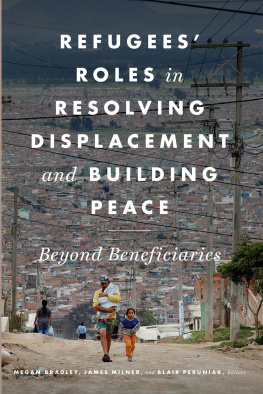
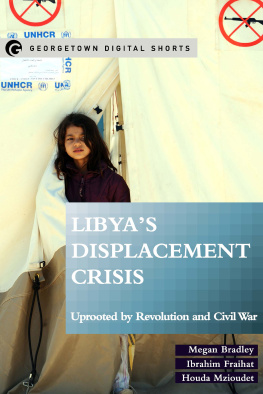

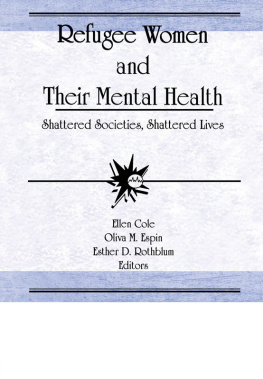
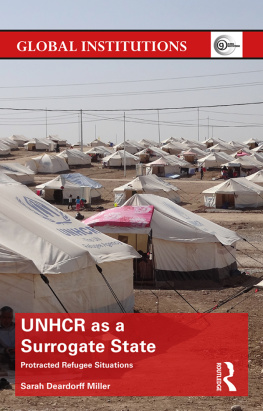
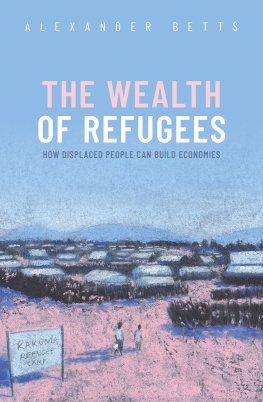
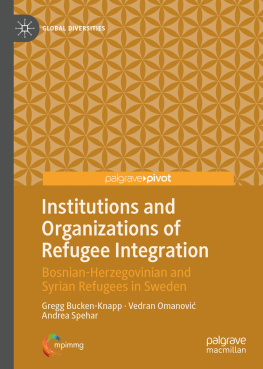
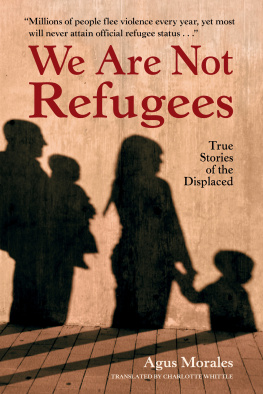
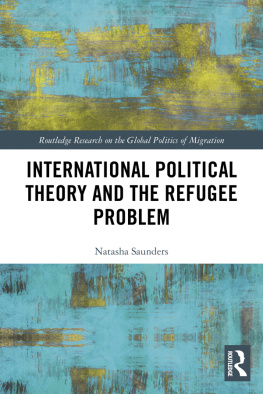

 This book is printed on acid-free paper meeting the requirements of the American National Standard for Permanence in Paper for Printed Library Materials.
This book is printed on acid-free paper meeting the requirements of the American National Standard for Permanence in Paper for Printed Library Materials.